Mae Salong was founded in the 1960's by the 93rd Regiment of the Nationalist Chinese (KMT) Army who had fled to Burma after the 1949 revolution in China, and then had to flee Burma when relations warmed between Yangoon and Beijing. A short but interesting history from Lonely Planet guidebooks is here.
That history makes Mae Salong a novel place where one can speak Chinese to both business owners and workers in the tea plantations, all mixed in with the Thai-speaking hill tribes who were there before 1960. Not to mention its location in the infamous opium producing Golden Triangle.
The yellow pickup truck from Tha Ton to Mae Salong is just about ready to pullout. Those are our black bags at top front.
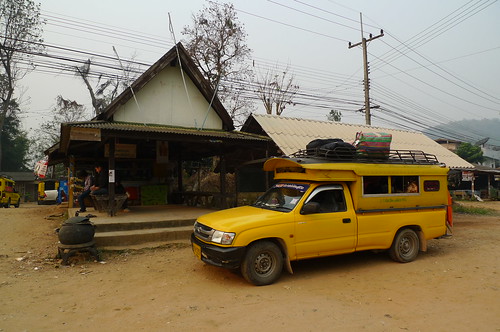
While I was riding shotgun, Sun-Ling sat in the back with the locals. Check out the big bags of fabric which are made into pouches and bags by hilltribe ladies for sale to tourists.

And a young monk was hanging off the back.



Fabric delivered. The young man with motorcycle (right) handed over 100 baht, about 3 USD to our driver (left). Sun-Ling says a receipt inside one of the bags said 16,000 baht, about 500 USD

First order of business, track down a bowl of Yunnan-style noodles.
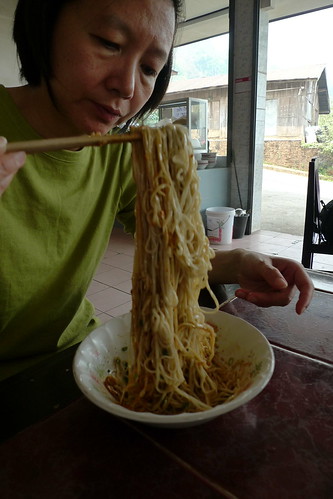
Main street with 7-11 and view to temple on the hill.
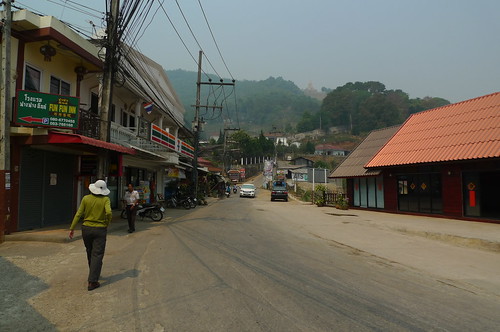
Arriving before noon, we decided to stretch our legs by walking the 700+ steps up to that temple, then taking the 4km road back to town.
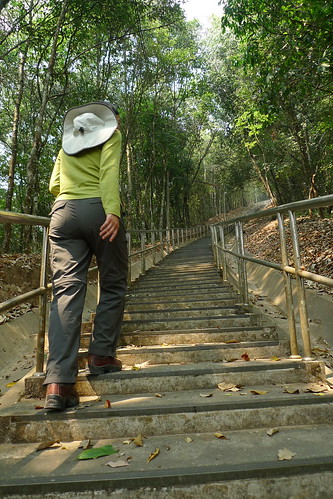
A hazy view as expected from the top. That's Mae Salong + main road at top right and a village at lower left.

Burma (Myanmar) is just 4kms to the west in this part of the Golden Triangle but we could not see that far.

On the walk down we heard a couple of gun shots. Probably this guy out hunting. Or scaring us away from his opium field?
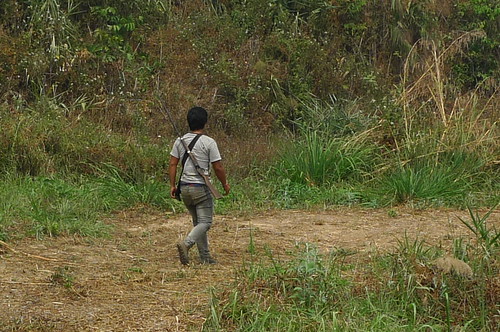
Back on the main road, its 895 kms south to Bangkok and 0 to Mae Salong.

The tomb, construction financed by money from Taiwan, of the KMT general who led his troops to Mae Salong.
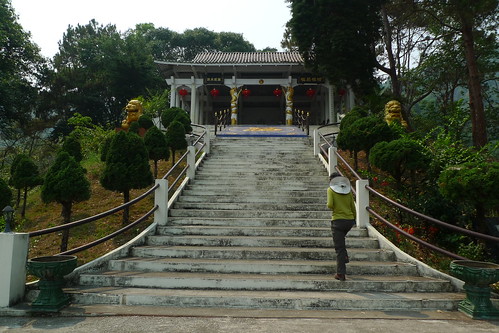
Two very tasty plates of noodles from Salema's, a very friendly Muslim restaurant on the main road. About 5% of the families in Mae Salong are Muslim. The Mosque was directly behind our hotel.

And for dinner, takeout from the market plus homemade radlers on the veranda of our bungalow.
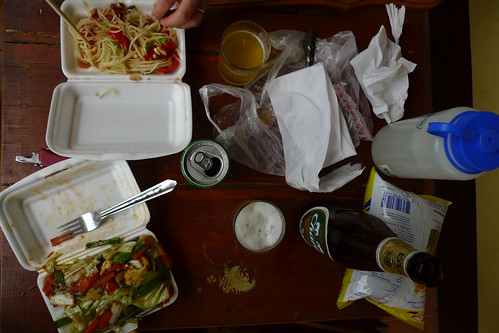
The Morning Market is over by 8:00 am so we got there just after sunrise to buy breakfast.

And we bought Chinese deep-fried youtiao; Thai rice in banana leaves; Indian egg roti from a woman who spoke Thai, English, and Malay but no Chinese; and a samosa from a local vendor. Wow! A feast!


Activity of the day; 10-km hike through a few villages plus the local tea and teak plantations.

Tea Plantation with sprinkler system to survive the dry season.

Looking over to the terracing for a new teak plantation.
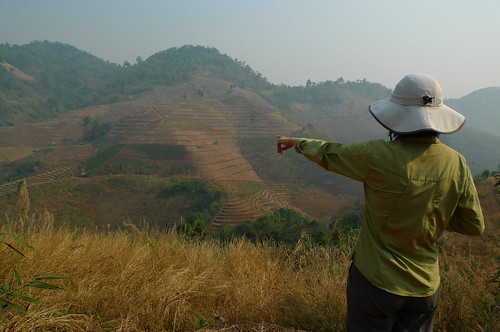
One of these tea pickers called out to us in Chinese Nǐ de guójiā where are you from?
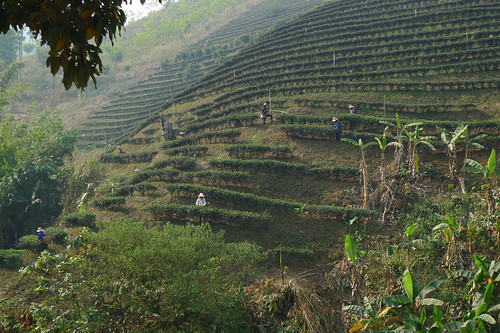

No rain for months.


Sun-Ling is a speck in the distance as we traverse this terracing.

And that same terracing as seen from across the valley.

More tea plantations with sprinklers.

Another self-service water station with cups, ice bucket, and jug. Love 'em!

Tasty cucumber salad.
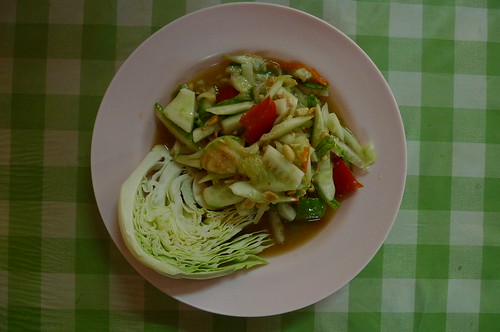
You guys are SO energetic!
ReplyDeleteI am always baffled by the notion of eating noodles with chopsticks, lol.
Kathy, Not sure that "energetic" is the right word in the current heat and smoke wave but I get your point. We gather no moss for sure. ;-)
ReplyDeleteWhere does the water come from from the sprinklers?
ReplyDeleteAny solar panels?
Liz - Good questions!...Did not see any solar panels here. The water is stored in in-ground cement tanks about the size of a 1 or 2-car garage. We saw several of these...How does the water get into the tanks? I'm not sure but suspect there is a larger water source somewhere like a dammed-controlled lake, and the water is piped from that source into these tanks.
ReplyDeleteThanks, very curious as it is so arid.
ReplyDelete